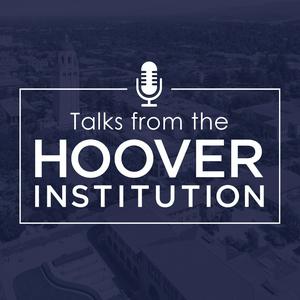Taiwan Roundtable Discussion
On behalf of Taiwan in the Indo-Pacific Region and its National Security Task Force the Hoover Institution held a Taiwan Roundtable Discussion on Tuesday, February 18, 2025, from 5:00 - 6:00 pm PT.
Taiwan is facing a potential constitutional crisis. In December 2024, Taiwan’s opposition-controlled legislature voted to impose a 2/3 supermajority quorum for the Constitutional Court to hear new cases. The legislature then voted down all the new nominees to the Court, leaving it with only 8 of members and unable to meet the new quorum requirement. The government has appealed to the Court to meet anyway and rule that the new amendments are unconstitutional.
In this discussion, three experts on Taiwan’s politics and judicial system discuss the factors leading up to this confrontation, the options facing the court, and the potential for deeper reforms to strengthen judicial independence in the face of a deepening confrontation between the ruling and opposition parties.
ABOUT THE PARTICIPANTS
Chien-Chih Lin is an associate research professor at Institutum Iurisprudentiae, Academia Sinica and an associate professor at the Graduate Institute of National Development, National Taiwan University. He received the LLM & JSD degrees from the University of Chicago. His academic interests focus on comparative constitutional law in Asia. Lin is the coauthor ofConstitutional Convergence in East Asia (2022) and Ultimate Economic Conflict between China and Democratic Countries (2022). His articles can be found in both peer-reviewed and student-edited law journals as well as edited volumes, including Oxford Handbook of Constitutional Law in Asia, American Journal of Comparative Law, and International Journal of Constitutional Law. He is the book review editor of International Journal of Constitutional Law.
Weitseng Chen is a faculty member at the National University of Singapore Faculty of Law, specializing in law and economic development, law and politics, and legal history in the context of Greater China. He has recently published several books, including Regime Type and Beyond: The Transformation of Police in Asia (CUP, 2023), Authoritarian Legality in Asia: Formation, Development and Transition (CUP, 2019), The Beijing Consensus? How China Has Changed the Western Ideas of Law and Economic Development (CUP, 2017), Property and Trust Law: Taiwan (with Yun-Chien Chang & Y. J. Wu, Kluwer, 2017), and Law and Economic Miracle: Interaction Between Taiwan’s Development and Economic Laws After WWII (in Chinese, 2000). Weitseng Chen earned his JSD from Yale Law School. Prior to joining NUS, he served as a Hewlett Fellow at Stanford’s Center for Democracy,Development, and the Rule of Law (CDDRL) and practiced as a corporate lawyer in the Greater China region with Davis Polk & Wardwell.
Kharis Templeman is a research fellow at the Hoover Institution and part of the Project on Taiwan in the Indo-Pacific. Templeman is a political scientist (Ph.D. 2012, Michigan) with research interests in Taiwan politics, democratization, elections and election management, party system development, and politics and security issues in Pacific Asia.

